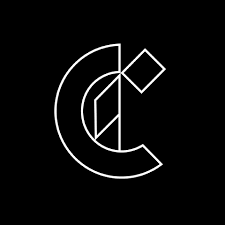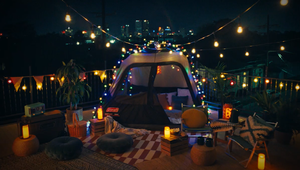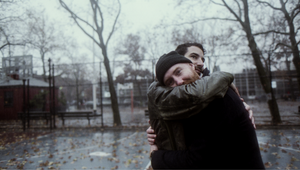
The Directors: Angie Bird

As a former agency art director turned director/photographer, Angie Bird has worked in just about every corner of the commercial industry producing work for clients ranging from Procter & Gamble to Allstate to Nintendo and countless others.
Her first short documentary, ‘You Won't Regret That Tattoo’ was featured in The Atlantic, got a Vimeo Staff Pick, and played at international film festivals. She won the coveted Cannes Young Director Award for ‘Mean Tweets’, a commercial depicting the genuine struggles of homelessness, and was shortlisted for the D&AD Next Director award in London for her work on the Myer Give Registry campaign.
In 2018, her Gillette campaign ‘First Shave,’ a heartfelt examination of masculinity in the trans community, won top prizes at Cannes, the Clios and The One Show.
Most recently, she recently picked up another Vimeo Staff Pick for her remotely-produced short doc ‘Club Quarantine.’
Name: Angie Bird
Location: Toronto
Repped by/in: Curfew-USA, Westside Studio-Canada, Airbag-Australia.
Awards: Cannes Glass Lion, Cannes Lion, Young Director Award, Clio
LBB> Congratulations on joining Curfew! What are you looking forward to doing with this new representation?
Angie> Curfew has incredible relationships with the brands and agencies that are really interesting to me. When I looked at the work Curfew produces it was very much in line with the style of storytelling I want to produce. I want to work with Curfew to be able to create compelling documentary, lifestyle and narrative work that's emotive, visually striking, contemporary and stylised. And then as soon as I met Kathryn, Spencer and Mark I knew it was a perfect fit! They are so passionate, talented and driven while being so down to earth at the same time. Our first call we all had our dogs with us which was a pretty good sign. We had a lot of laughs and I knew their vibe was perfect for me.
LBB> What are some upcoming projects that you're excited about? Tell us a bit about them?
Angie> I’m working with some close friends on a new short film that will be a hybrid of live action and animation. I’ve always loved multimedia work and I’m pushing to do more of it. My short documentary ‘Club Quarantine’ played in this world. My new narrative short will use the same sort of multimedia styling but with more animation in the storytelling. I went to art school and also started my career as an advertising art director so I’ve always loved different mediums, photography, design, animation. So to be able to blend different artistic approaches into my film story telling is really satisfying for me. I want to push my work into this direction.
LBB> What excites you in the advertising industry right now, as a director? Any trends or changes that open new opportunities?
Angie> I love the diversity we are seeing on screen, within crews, and even within agencies as well. As I mentioned earlier I began my career as an art director at an agency and there were some questionable practices, like every mum doing the laundry in a commercial had to wear a wedding ring. It was subtle, but there were a lot of things like that that really irked me. There were also some not so subtle omissions of representation - like the complete absence of same sex couples and the underrepresentation of Black, Indigenous, and people of colour. Now there is so much more room for storytelling that looks and feels authentic. It’s exciting to be able to tell stories that haven't been told before, and with people who were never allowed in the spotlight. Including underrepresented people in my work is important to me and it's always at the forefront of my casting and crewing practices. We’ve still got a long way to go, but I hope I can continue to tell stories from new perspectives while celebrating people from all walks of life.
LBB> What elements of a script sets one apart from the other and what sort of scripts get you excited to shoot them?
Angie> My favourite thing when reading a new script is if I can immediately see it play out in my imagination. When my brain gets flooded with ideas about how to bring it to life, cool casting, camera techniques, music etc. Sometimes I’ll read a good script and instantly want to start writing down ideas or pulling references. Usually that happens when there is a particularly strong insight built into the script. When the script is simple yet powerful, and when the message is clear. It’s so much fun to take a great script and see what I can add to it to elevate it in the execution. For example when I read the Gillette First Shave script about Trans men shaving for the first time, I was drawn to uncovering all of the emotional grit that comes with that right of passage. For me one thing I knew I wanted to include was a supportive father passing down his knowledge of shaving to his son. This is something we are familiar with, but not every trans boy/man has the privilege of having a supportive father who will guide them into manhood. I wanted to find a way to show what that would look like. To have that time honoured tradition between father and son but told from a new loving perspective.
LBB> How do you approach creating a treatment for a spot?
Angie> I jot down all of my ideas as bullet points first, and just let everything flow unedited. Then I begin pulling visual and technique references. I work with a visual researcher I love because they often find material I’ve never seen before, which helps keep things fresh. Finally, it's all about synthesising the ideas and visuals in a way that is simple to digest while also being exciting and inspiring for the reader.
LBB> If the script is for a brand that you're not familiar with/ don’t have a big affinity with or a market you're new to, how important is it for you to do research and understand that strategic and contextual side of the ad? If it’s important to you, how do you do it?
Angie> I often do brand research to figure out who the brand is and what messaging is important to them, especially if I’m not very familiar with them. Since I began my career on the agency side, I'll put my agency hat on for a bit and dig into what I think the brand would like their consumers to get from the brief. Once I have a good sense of the brief from a marketing perspective, I'll switch to my Directing hat so I can dig into the creative execution. And that's when the fun starts for me! I love when the agency tells me the buzz words the client wants to hear lol, it’s actually super helpful when working out the brand's vibe.
LBB> For you, what is the most important working relationship for a director to have with another person in making an ad? And why?
Angie> My most trusted people around me are my execs, my line producer, DP, AD and production designer. Being surrounded and supported by my talented key crew at all times is invaluable because I know when we get a curveball (and let's be honest, there is always a curveball) we can find a solution together. For me, it's equally important to have a great relationship with the agency. The brief is their idea that they are entrusting me with. Sometimes they've spent months on multiple script revisions before I even see it. So when it gets to me, I want to be a collaborator to help them bring their idea to life and it's nice to feel like we're all on the same team. Production can be stressful, but if you get along with everyone it can be really fun. I’m grateful that I get to do my dream job, so it’s important to me that I surround myself with kind, talented people and that we all have fun while we’re doing it.
LBB> What type of work are you most passionate about - is there a particular genre or subject matter or style you are most drawn to?
Angie> The campaigns that I’ve worked on that mean the most to me all have the common thread of resilience and empowerment. I’ve worked on stories centred on homelessness, the fight against breast cancer, transgender stories, domestic violence survivors, female empowerment and children’s rights. Representing adversity in an honest way and celebrating the dignity and autonomy that a person embodies has always been my favourite subject to film.
LBB> What misconception about you or your work do you most often encounter and why is it wrong?
Angie> Probably that I only do documentary work. I love doc work, and I think my love for raw authenticity will always inform my narrative work. There is a way to bring my love for real people and stories into the scripted world. I’d love to get some more narrative and visually stylised multimedia work. I have so many narrative and multimedia ideas brimming inside of me and I would just love to work with awesome creatives to bring them to life!
LBB> What’s the craziest problem you’ve come across in the course of a production – and how did you solve it?
Angie> We were once shooting a tornado aftermath scene on a mountain peak in California, which we dressed with debris to look like a neighbourhood had been destroyed. We had a techno dolly and the main cast were a nine year old girl and a dog. The winds got so wild that we couldn’t shoot, we just had to strap everything down and come back a couple of days later when it was safe.
There was also another job where we were shooting a stylised spot with a split screen using a match cut technique. Everything in the left and right world was similar but different. We had a lot to accomplish in two days. Anyway, on the first shot of the first day our hero lamp (that was centre screen) was bumped by a gaffer and broke right before we called action. It was a vintage lamp so we only had one of them. My production designer and the electrics sprung into action and turned a cool vintage vase (that had the same dimensions we needed) into a lamp. The split screen match cut still worked and in all honestly I liked the look of the vase/lamp better. That's why it's so important to have great people around you, people who can think quickly and help you solve problems.
LBB> How do you strike the balance between being open/collaborative with the agency and brand client while also protecting the idea?
Angie> Any agency script that gets produced has had creatives working on it for a long time. A script is not the only the result of their creativity and passion, it also the product of conversation, analysis, and compromise. So I think it’s important to bring that understanding into the experience and collaborate closely with the creative team to bring something to life that makes us all proud. I will certainly push for what I think are the best ideas and give rationales for why I think something works. That said, I want to maintain a spirit of working together to get to a place where everyone is happy and we make something that does the job we intended for it to do. That intention is about advocating for what’s best for the creative outcome, not pushing a point based on ego.
LBB> What are your thoughts on opening up the production world to a more diverse pool of talent? Are you open to mentoring and apprenticeships on set?
Angie> Absolutely. It’s no secret that the production world is white, cis-male dominated. Even when I was starting out as a director, a female EP friend of mine told me that I should go by the name 'Birdie' (my nickname) because it could be unisex and then people won’t discount my reel for being female. That was only eight years ago but thanks to the hard work of organisations like Free The Work, as well as agencies and production companies committing to doing the work of enacting real change in their ranks, the production space has opened up for underrepresented groups. That said, we still have a long way to go, especially with making sure film crews have more BIPOC representation. For the last few years my line producer Michelle Woodward and I have each been bringing a female/non binary BIPOC mentee onto set with us. One person to shadow me through the director’s process and one to shadow her to learn all about the Line Producing side. It’s a paid position and we try to get as many people as we can on set to learn how it all works. They see who does what, watch the process, and hear the lingo. Many of our mentees have gone on to work on other sets, which feels like a great success. It’s our responsibility and privilege to help people get their foot in the door so that they can see the many different roles in production, some of which they may not have even known existed. You can’t be what you can’t see!
LBB> How do you feel the pandemic is going to influence the way you work into the longer term? Have you picked up new habits that you feel will stick around for a long time?
Angie> I don't mind working remotely for some things, I feel that I can be a lot more efficient. For instance briefing my team; it used to be we would have to find a time to meet up that worked for each of our busy schedules or just chat over the phone. But now I can have really great video briefing calls with everyone and then head out on a location scout all in the same day. I know everyone is so over Zoom, but it's been really handy for me, especially if I’m working with a team in a different city or country.
LBB> Which pieces of your work do you feel shows what you do best – and why?
Angie> YMCA - This was filmed with over 60 all real YMCA non actor talent. It has the diversity and empowerment that I love to film.
PLAN International - This was filmed with a mix of actors and non actors and we filmed in South Africa. The cast, crew and locations were amazing to film. This spot was all using match cuts to show the viewer a more empowered approach to a charity's work.
Club Quarantine - We made this during the height of the lockdown in 2020. The whole film was made with everyone working remotely. It was a lot of fun to make something with no client, no boundaries and a lot of dirty emojis ;)










